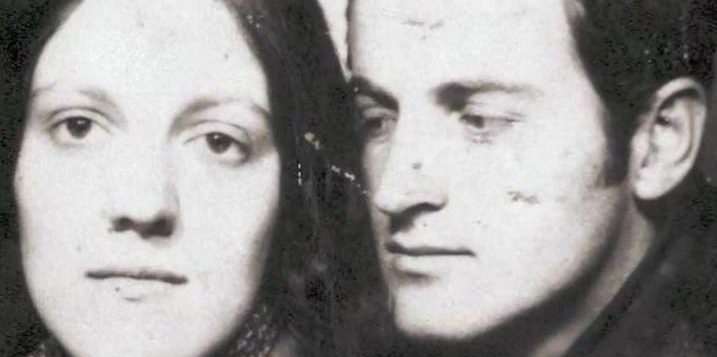The doorbell rang. When I went to the door, a German neighbor, because we got along with the neighbors there, said, ‘Miss Gërvalla,’ she said, ‘come quickly,’ she said, ‘because this and this happened.’ She said, ‘They were shot,’ she said, ‘they…’ I went out dressed as I was at home. I went out quickly. When I got there, the door of the car was open. […] A body fell to the ground, it was Kadri [Zeka]. Jusuf was in the back. Kadri fell to the ground. […] When I went closer, I saw, because I did not know who is where, I saw the dead body, I realized it was Kadri. When Jusuf said, because…. He always called me çikë [girl], he knew me since I was çikë, a child, and çikë, çikë… ‘Çikë,’ he said, ‘I am here’. […] I said, ‘Ah, Jusuf, where, where is your…’ He said, ‘It’s in my stomach,’ he said, ‘and in my back.’ Since Jusuf was sitting in the back, he could move. He said, ‘But please, check on Bardh,’ he said, ‘is he alive?’ He said, ‘because I can’t hear him.’ He called, ‘Brother!’
The police stayed the entire time with us until half past one. At half past one another policeman came, he said, ‘Jusuf had surgery, he is doing better.’ We were happy. At least one of them. […] I phoned the Ambassador at the Albanian Embassy. I told him. The Embassy sent someone. At eight o’clock in the morning, Misin Mavraj came from Munich. With him, we got in the car and went to the hospital, because we had no other news. The police left, everyone left. […] ‘We came to inquire about Jusuf Gërvalla, this and that,’ he said. He immediately said to him, ‘He died.’ ‘No, no,’ he said, ‘three of them came in,’ he explained, ‘two of them died and the other…’ He said, he raised three fingers, ‘All three of them died,’ he said.
Suzana Gërvalla was born on March 23, 1949, in Skopje, Macedonia. Due to the political activity of her late husband, Jusuf Gërvalla, who was a founder of the underground Albanian national movement, she sought political exile in Germany, Albania and Sweden. While in Albania, she studied History and Geography at the University of Tirana. After the war in Kosovo, she came back to live in Pristina, where she worked as a Senior Officer at the Ministry of Local Government and Administration. Upon her retirement, she now lives between Kosovo and Sweden.
